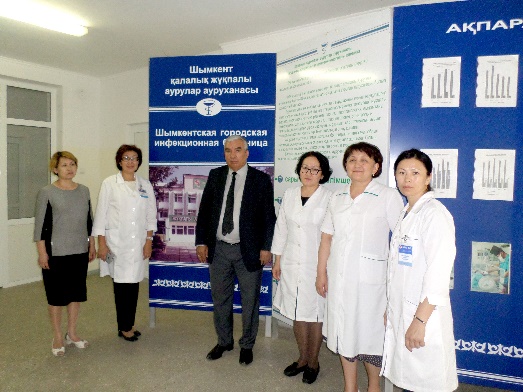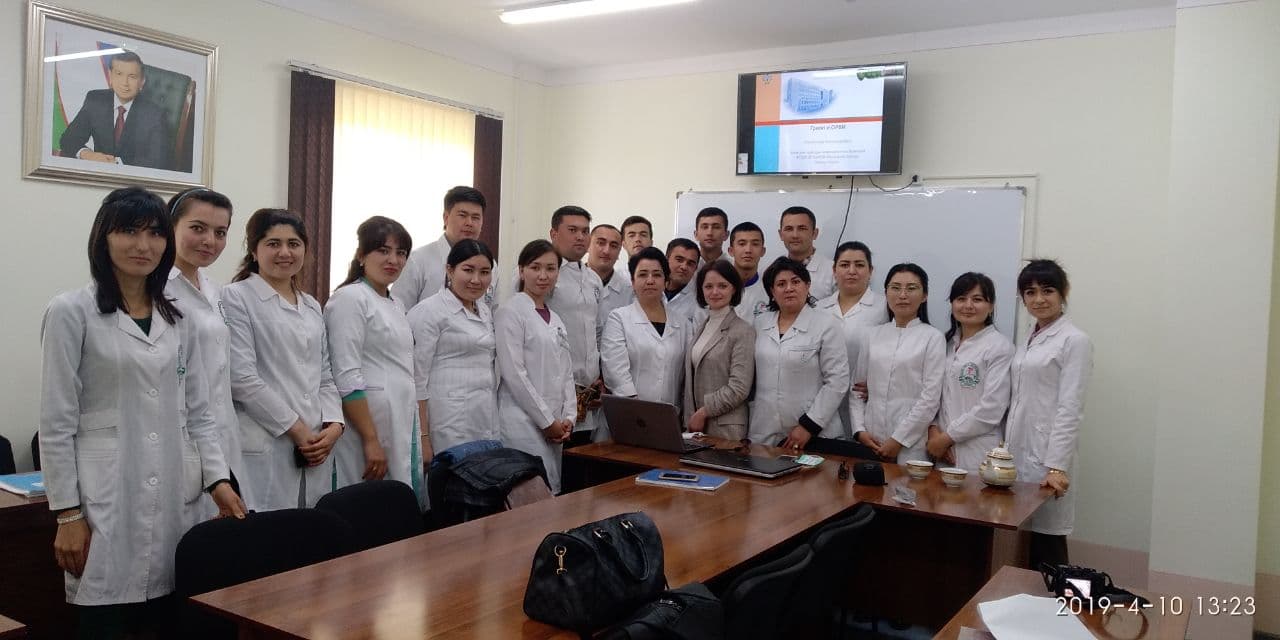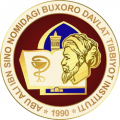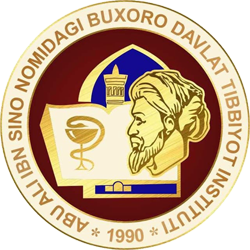Learning activities
30.12.2021 2022-05-07 19:41Learning activities
Practical lessons and the educational process at the department are enriched with practical skills, teaching materials and visual aids. Students of the department undergo industrial practice on the basis of the Bukhara Regional Clinical Infectious Diseases Hospital.
Subjects taught at the department
Ø Infectious diseases;
Ø Infectious diseases in children;
Ø Nursing for infectious diseases
Ø Military epidemiology;
Ø Epidemiology;
Ø Clinical Epidemiology;
The department teaches students in the following areas:
- 5510100 – General Medicine;
- 5510200 –Pediatric business;
- 5111000 –Professional education;
- 5510400 – Dentistry;
- 5510700 –Higher nursing;
- 5510900 – Biomedical Affairs;
- 5510300 – Medical and preventive work;
- 5510300 – Ethnoscience
The department trains master’s students in infectious diseases (general), residency in infectious diseases and childhood infectious diseases. Our lecturers-associate professors, attached to them, will teach, and improve their qualifications. Residents and residents of the magistracy, in addition to training, remain on duty at the Regional Infectious Diseases Hospital after classes.
Master’s residents, residents and undergraduate students study various methods of laboratory research in a laboratory located based on the Bukhara Regional Infectious Diseases Hospital.
According to the state educational standard of higher education, the science of infectious diseases and epidemiology, taught in the educational areas “Pedagogy” and “Health”, through new scientific knowledge and methods related to the study of human activities, public health protection, the fight against infectious diseases, which, unlike other somatic diseases caused by exposure to microbes can spread from the patient to the surrounding healthy people. Comprehensively studies the etiology, epidemiology, clinic, diagnosis, treatment, prevention and rehabilitation of infectious diseases provides a basis for substantiating the symptoms.
Goals and objectives of the subject
– Mastering the basic theoretical knowledge of infectious diseases.
– Mastering basic practical skills in infectious diseases.
– Mastering the basic principles used in teaching students in the subject of infectious diseases.
Requirements for the qualifications of students in the subject
-Principles of etiology, epidemiology, pathogenesis, pathological anatomy, clinical picture and laboratory diagnosis of the most common infectious diseases.
– Fundamentals of treatment and prevention of infectious diseases (general, individual, special).
– Collection of patient complaints, epidemiological and clinical history.
-Clinical examination of the patient in all organs and systems.
– Identification of basic data and clinical examination of patients with the allocation of symptoms for the formation of the primary diagnosis.
– Analysis of the results of laboratory examination of the patient.
– Formulation of a clinical diagnosis.
– Determination of treatment tactics.
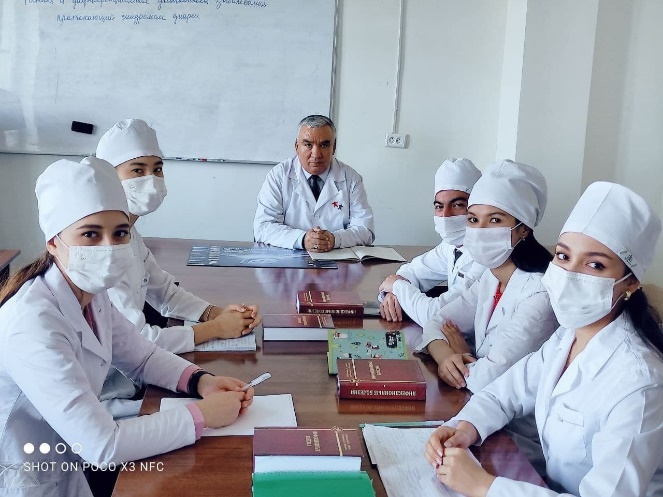





Academic mobility
The department has a well-established academic mobility among the teaching staff. The head of the department is Doctor of Medical Sciences, Professor A.R. Oblokulov in this area lectured and held master classes in 2018 at the Medical University of Bashkortostan, in 2019 at the South Kazakhstan Medical Academy, in 2019 at the National University of Kazakhstan named after I. Al-Farabi, in 2021 at the M. Auezov South Kazakhstan University.
Candidate of Medical Sciences, Associate Professor Mirzoeva M.R. held academic mobility at the Medical University of Bashkortostan in 2019 according to the plan, gave lectures and conducted practical exercises.
